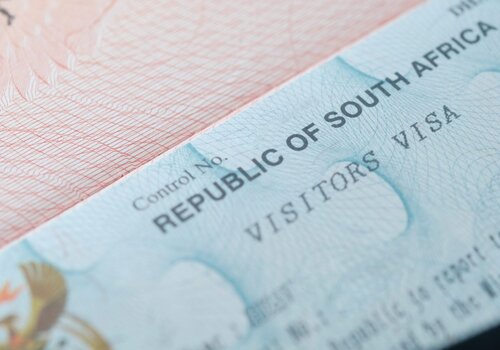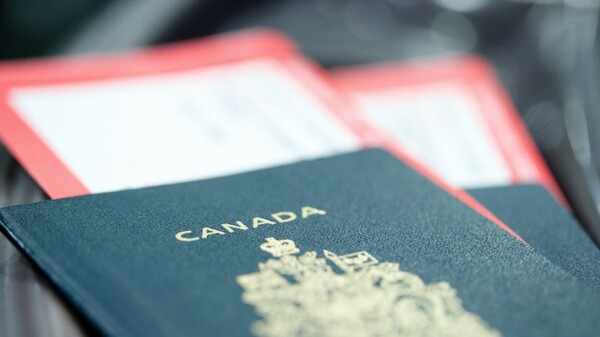Are you looking to study in Canada from Nigeria but wondering what requirements and tuition fees you have to pay?
Well! Studying in Canada does not require much money as most student thinks. In fact, in one of my articles on how to study in Canada without breaking the bank, you will learn insight into some useful tips to cut down on the cost of studying in Canada.
The requirements to study in Canada for Nigerian students are also getting tougher year in and year out. This means you need to be well equipped with all the latest information that you need to achieve that dream of studying abroad.
This article will discuss everything you need to study in Canada from Nigeria. The goal is to help you familiarize yourself with the step-by-step process, cost, and up-to-date requirements of studying in Canada.

Table of Contents
- 1 How much does it cost to study in Canada from Nigeria?
- 2 What are the requirements for studying in Canada for Nigerian students?
- 3 Which program is popular among Nigerian Students in Canada?
- 4 How to Apply for Student Visa in Canada from Nigeria
- 5 How much is the student visa fee from Nigeria to Canada?
- 6 How much will it cost to study in Canada from Nigeria?
- 7 How to Study Medicine in Canada from Nigeria
- 8 Requirements to Study Medicine in Canada from Nigeria
How much does it cost to study in Canada from Nigeria?
The cost of studying in Canada from Nigeria depends on the level of education you are seeking and the institution you choose. Generally, undergraduate programs cost more than graduate programs. For example, an undergraduate degree at a public university in Canada costs between CAD 15,000 and CAD 35,000 per year, while a graduate degree costs between CAD 6,000 and CAD 20,000 per year.
Likewise, Private universities can be more expensive; an undergraduate degree may cost up to CAD50,000 per year, and a graduate degree up to CAD 30,000 per year. Some institutions also charge additional fees for books, laboratory equipment, transportation, and housing.CAD
In addition, if you choose cheap universities in Canada, the cost of studying can be as low as CAD 3,000 per year.
Schools in Canada that provide cheap tuition fees for Nigerian students, depending on the topic of study, include:
- Memorial University of Newfoundland fees start at CAD 2,150 per year
- University of Regina fees start at CAD 1,715 per year
- Royal Roads University fees begin at CAD 3,750 per year
- Athabasca University fees begin at CAD 1,625 per year
Regardless of the university or college you decide to study in, you will need to prove that you have enough money to cover your expenses while you are in Canada. The amount required varies depending on the institution and the program you choose.
What are the requirements for studying in Canada for Nigerian students?
There are a number of requirements that you must meet before you can be admitted to study in Canada.
Besides, you must be sure to familiarize yourself with the Canadian education system and the types of programs offered at Canadian universities.
Below are the requirements to study in Canada from Nigeria:
- Letter of Acceptance by DLI
- Letter of Motivation
- Statement of purpose
- Canadian Study Permit
- Proof of English Proficiency, e.g IELTs
- Proof of Funds
- Medical Exam
- Police Certificate
Which program is popular among Nigerian Students in Canada?
There are many popular programs among Nigerian students studying in Canada. The most popular programs are business, engineering, and sciences. These programs offer a range of opportunities for students to gain the skills and knowledge they need to succeed in their careers. They are broadly spread across diplomas, undergraduate, master’s, MBA, and Ph.D.
Diploma
A diploma is a certificate issued by an educational institution to show that a student has completed a course of studies, such as a vocational and training institution, community colleges, and some colleges and universities. Some Nigerian students enroll in diploma programs as a first step in pursuing further education in Canada.
A diploma certificate also shows that you have a thorough understanding of a subject. By presenting your certificate on your CV and displaying your skill level to potential clients and employers, you can improve your work prospects. It normally takes 12 to 18 months of full-time education to complete and receive a diploma.
Undergraduate
Every year, a large number of Nigerian students go to Canada to begin undergraduate degree programs at various institutions and colleges. Depending on the course and specialization, a full-time bachelor’s degree program in Canada lasts four years.
Universities often award degree programs to qualified Nigerian students. Colleges often give associate degrees, whereas other schools typically offer skill-oriented certifications and certificates.
In Canada (unlike Nigeria), education is overseen by the provincial government, while the federal government oversees the overall administration. Both public and private educational institutions, universities, and colleges welcome international students.
Masters
Master’s degrees are popular among Nigerian students studying in Canadian universities. A master’s degree is awarded to students who have completed postgraduate level education in a specific field of study or area of professional practice and exhibited a high level of competence during the process.
Students who get a master’s degree have completed advanced coursework in their field of study. This program, which takes one to two years to complete, is open to students with a bachelor’s degree. The majority of Nigerian students complete their Masters’s program in 1-2 years.
MBA
MBA has long been recognized as one of the top degrees to pursue when studying in Canada from Nigeria. The majority of Nigerian MBA aspirants prefer to work in a foreign country, particularly in the study abroad destination.
An MBA opens you with more job opportunities and exposes you to a wide business network, as well as new skills and information and a thorough awareness of the business world. More than 40% of CEOs of Fortune 500 companies have earned an MBA. While a small percentage of MBA graduates return to Nigeria in search of greener pastures or to run family businesses, the vast majority remain in Canada to work.
PhD
The doctorate is normally granted as a last ‘terminal degree,’ or the highest level of academic accreditation a student can obtain after finishing an undergraduate Bachelor’s degree and a postgraduate Master’s degree in Canada, as it is in other countries.
A number of doctoral degrees are available, including professional doctorates such as the Doctor of Business Administration (DBA) and Doctor of Education, in addition to the typical academic Ph.D. (EdD). The majority of courses involve at least three years of full-time study and research, with some students enrolling for as long as six years.
How to Apply for Student Visa in Canada from Nigeria
If you want to study in Canada from Nigeria, you will need to apply for a student visa. The process of applying for a student visa can be complicated, but with the help of an experienced lawyer, it can be done. Here are the steps you need to take in order to apply for a student visa:
- Gain Admission. Submit an application for admission into a Canadian educational institution. It is important to attain admission initially because obtaining a letter of admission and acceptance from a Canadian university is one of the basic conditions for applying for a Canada student visa.
- Gather the required documentation. You will need to provide a number of documents in order to apply for a student visa, including your passport, letter of acceptance from a Canadian educational institution, proof of financial support, and medical examination results. These documents are crucial since they act as your representative at the embassy. Each document should be photocopied and, if possible, scanned into an electronic device such as a computer or flash drive.
- Submit at the VAC. You will receive a receipt with a tracking number after completing your application and making the relevant payments. The tracking number will be used to track the status of your visa application. Be prepared for an interview as well.
- Keep track of your application online. When you’re ready, go here to track your visa application. This allows you to check where your visa application is in the process and when you can pick up your passport.
- Pick up your passport. The final step is to go to the visa application center to pick up your visa when it is ready. When it is ready to be picked up, you will be contacted.
How much is the student visa fee from Nigeria to Canada?
Generally, the cost of a Canadian student visa fee in Nigeria is CAD 150 (₦91,500). I calculated the cost in Naira using the black market exchange rate of N610 as of July 24th, 2023.
How much will it cost to study in Canada from Nigeria?
The cost of studying in Canada from Nigeria will depend on the school and program you choose. Generally, tuition and other fees will range from $10,000 to $40,000 CAD per year. You will also need to budget for living expenses, which can be around $10,000 CAD per year.
How to Study Medicine in Canada from Nigeria
If you’re a Nigerian looking to study medicine in Canada, there are a few things you need to know. The first step is to decide what type of medical program you want to pursue. There are three types of medical programs in Canada: undergraduate, graduate, and postgraduate.
Undergraduate medical programs are four years long and lead to a Bachelor of Medicine and Surgery (MBBS) degree. Graduate medical programs are either one or two years long and lead to a Doctor of Medicine (MD) degree. Postgraduate medical programs are either three or four years long and lead to a specialty qualification such as a Doctor of Dental Medicine (DMD), Doctor of Veterinary Medicine (DVM), or Master of Science in Dentistry (MSD).
The next step is to identify the schools that offer the program you’re interested in. We have here a list of top Canadian medical schools below for you. In fact, there are seventeen medical schools in Canada at the moment. Some universities, such as Manitoba, McMaster, and Toronto, offer two-year bachelor’s or master’s degrees in physician assistant training in addition to medical doctor training.
Canada’s academic standards are strong, and its education is of high quality. Students that are accepted into a Medical Program in Canada receive high-quality instruction, exposure, and hands-on experience. It opens up a slew of possibilities for your future, all of which will improve your job in the long term.
See Also: WES Payment Issues? Quick Ways to Pay for your WES from Nigeria!
Requirements to Study Medicine in Canada from Nigeria
To study medicine in Canada from Nigeria, there are a few requirements that you must meet.
Eligibility Requirement: Most provinces require at least two years of postsecondary study, but Quebec residents must finish their CEGEP training before applying to a medical school in that province. Most institutions also require students to take particular basic science courses prior to enrolling in their program in order to prepare them for medical school.
Academic Performance: Academic performance is a factor that medical schools consider when evaluating candidates for admission to their programs. The grade point average (GPA) is used by selection committees to examine if applicants have the necessary study habits and intellectual capacity to pursue medical courses. Some people also use the results of the Medical College Admission Test and the Admissions Screening for People Skills.
Essay: Nigerian students can set themselves apart from other applicants by writing an essay that shows their personality and accomplishments and submitting it to the selection committee.
Reference letters: Reference letters are required by most Canadian medical schools and can be obtained from community people, faculty members, or prior employers. These letters provide extra insight into the type of medical student a candidate might become for selection committees.
Tuition Fees: Nigerian students studying medicine pay an average of CA$27,159 (US$20,600) a year in tuition, while other medical courses cost CA$ 13,000 per year.
Top Canadian Medical Schools
- University of Manitoba
- University of Calgary
- University of Alberta
- University of Toronto
- University of Saskatchewan
- Western University
- McMaster University
- Queen’s University at Kingston
- University of Sherbrook
- University of Ottawa
- McGill University
- The Northern Ontario School of Medicine

Emmanuel Peter is the founder of Naijajapa.com. Experience gained in the Study abroad and Immigration industry since 2017. A graduate of International Relations from ABU Zaria.








